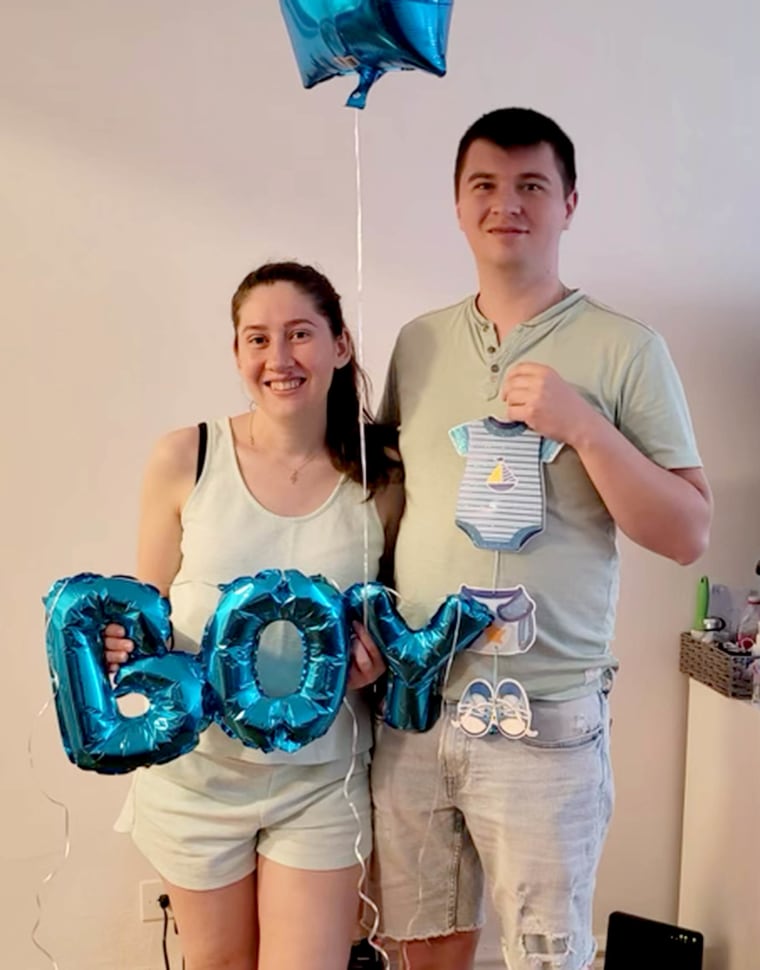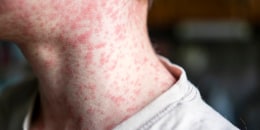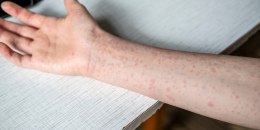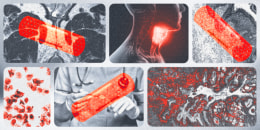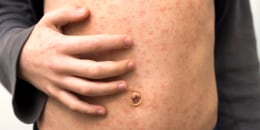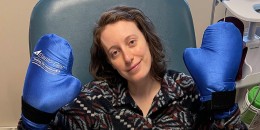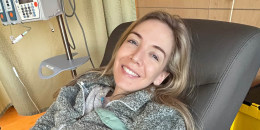Soon after Mariana Volkova gave birth to her son, Alex, in 2022, it was clear something was wrong with the baby. Medical staff whisked Alex to the neonatal intensive care unit (NICU), and for nearly 12 hours, Volkova and her husband, Alexander Volkov, had no idea how their son was doing. When they learned what was wrong, it sparked more questions for the couple.
“They told us that most likely our son has polycystic kidney disease,” Volkova, 27, from New Jersey, tells TODAY.com. “We didn’t know what it is. … Is it dangerous?”
The couple soon learned that Alex was struggling to live. “They told us there was almost no chance for him to survive,” she says.
One of the doctors caring for Alex in the neonatal intensive care unit at Mount Sinai in New York City, Dr. Felix Richter, asked if the couple would like to participate in research that would investigate why Alex died.
The goal of the research is to help prevent future NICU deaths. Currently, doctors can only identify a cause in about a quarter of babies who die in the NICU, Richter tells TODAY.com.
But Richter and his team were able to figure out why Alex got so sick: His mom had a DNA variant that no one knew could lead to polycystic kidney disease.
Thanks to this discovery, the Volkovs now have a healthy baby via in vitro fertilization — and many others likely will too.
“I actually was looking for answers and blaming myself,” Volkova says. “I wanted to know the reason why.”
A ‘perfect’ pregnancy
Volkova believed her “pregnancy was perfect,” she recalls.
At all her checkups, doctors told her everything appeared healthy, including at her final, 20-week ultrasound. But for the last two months of her pregnancy, she experienced back pain and mentioned it to her doctor.
“He kind of ignored it. He said it’s normal,” she recalls. “But the back pain was really bad, horrible.”
At around 33 weeks pregnant, she had an appointment with her obstetrician, who checked the baby’s heartbeat.
“He said, ‘Everything is perfect. The heartbeat is perfect,’” she says.
A week after that visit, she woke at 2 a.m. in pain. Volkova called her sister, who is a doctor, and her sister advised that she head to the emergency room. Volkova’s doctor agreed.
“He’s like, ‘Yes, OK, you can go to the hospital, but it is too soon for you to deliver,’” she says.
Volkova was only 34 weeks and five days pregnant, but she was in labor and she needed to deliver. Baby Alex was breech, and doctors performed a C-section on July 14, 2022.
Shortly afterward, they noticed the baby had no amniotic fluid. “They took my son into intensive care," Volkova recalls.
For hours, the new parents didn’t hear anything about their son. They finally learned he had autosomal recessive polycystic kidney disease (ARPKD), which likely triggered the early labor. The couple felt stunned.
Neither had a family history of the condition — which causes cysts filled with fluid to form on the kidneys, leading to poor kidney function, according to the National Institute of Diabetes and Digestive and Kidney Disease.
Alex's kind, ARPKD, can be diagnosed in the womb or shortly after birth. About 30% of kids with ARPKD will die within the first week of life, often due to breathing problems. Alex, for example, had no amniotic fluid because he wasn't able to urinate due to reduced kidney function. Fetuses' urine makes up much of the amniotic fluid, and they inhale amniotic fluid to breathe in utero.
“Everyone is telling me that he’s really sick, and I cannot believe it because he was fine a week ago when I went to my doctor. He was fine for weeks. But now they tell me that he’s not fine,” she says. “I called my sister, and I told her, ‘What is that? What is polycystic kidney disease?’ She’s like, ‘Oh it’s bad.’”
In about 50-60% of cases of ARPKD, the 20-week ultrasound doesn't pick it up, Richter says, possibly because it develops later in the pregnancy.
The day after Volkova delivered Alex, he was transferred to Mount Sinai for further treatment. Doctors there explained the plan to treat Alex, but stressed that he still might not survive.
“I didn’t want to believe what they were saying to me was true because it was like, ‘No it’s not possible. It’s my son,’” she says. “I cannot lose him.”
Supporting a baby with polycystic kidney disease
When Richter met baby Alex, the infant was in respiratory distress and very ill. “(His) belly was large. ... Both kidneys have these massive cysts," he recalls.
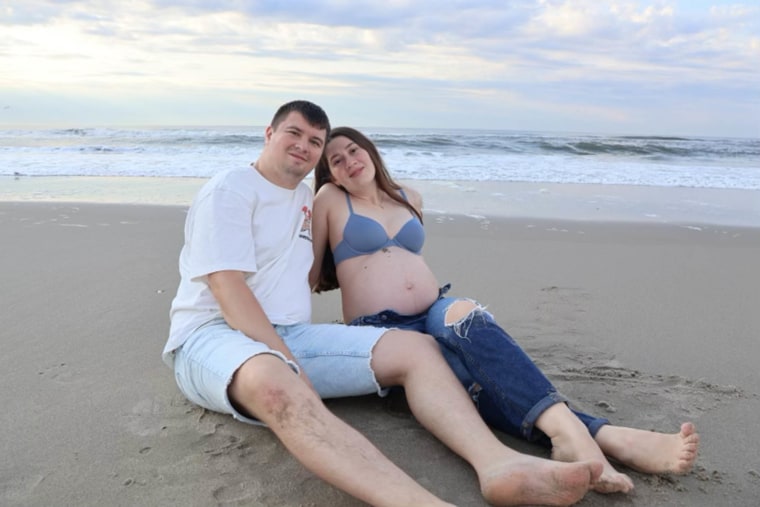
Based on Alex's symptoms, doctors knew he had autosomal recessive polycystic kidney disease.
“It was very severe,” Richter says. “His lungs were underdeveloped. He needed maximal intensive care support to stay alive.”
Staff tried different ventilator strategies to help provide oxygen to Alex, but nothing seemed to work well enough.
When babies are born with autosomal polycystic kidney disease, they often need kidney transplants and will stay in the NICU until they're large enough to receive one. But Alex was too ill. While doctors can place babies on ECMO, a machine that takes over for the heart and lungs, they do not grow when relying on it.
As doctors spoke with Volkova about next steps, Alex’s health faltered.
“I called upstairs to Alex’s bedside, and they said, ‘He’s getting sicker. Please come now,’” Richter recalls. “Alex’s heart rate was dropping.”
Staff started chest compressions and prepared for more invasive interventions, but Alex's parents told them to stop.
“We decided to let him go because he was suffering from the pain," Volkova says. At two and a half days old, Alex passed away.
After Alex’s death, Richter approached the couple about joining the research he and his team were conducting into why babies in the NICU die. They agreed. They, too, wanted answers.
“No one in my family or no one in my husband’s family had the disease,” Volkova says. "For us, this was a huge shock.”
Understanding infant deaths
Richter and his colleagues have been investigating why some babies pass away soon after birth with no clear cause — which happens with about 75% of NICU deaths — in a study called NICUnet.
“One of the toughest things that parents go through in the NICU is when a baby dies and ... there’s often no answers,” he says. “It tends to happen when the baby dies pretty quickly, usually within the first week of life.”
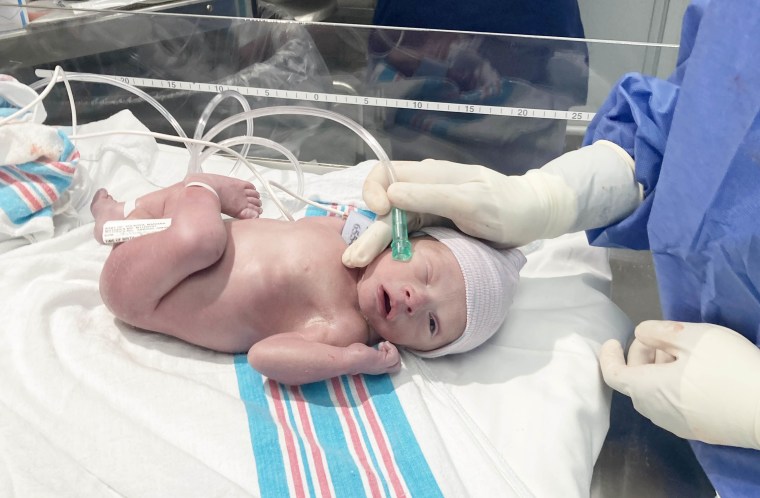
Richter and his team have been experimenting with new technologies to try to provide answers to parents.
To understand baby Alex’s death, Richter first tested both of his parents for the gene mutation that causes autosomal polycystic kidney disease. It’s a recessive condition, meaning that both parents must carry the gene that causes it and pass it to their baby. While Volkov had a gene associated with it, Volkova did not.
“You need two bad copies of a gene,” Richter says. “That’s where the story would have stopped clinically. … It’s essentially an unsolved case.”
But Volkova wanted to know why Alex had this fatal condition. She’d send emails asking Richter if walking past a radiology office could have caused Alex’s kidney disease or if having a cold during pregnancy harmed her baby.
“It was like (she was asking), 'What did I do during the pregnancy to cause it? Did we pick the wrong OB? What was missed?'” he recalls.
Richter and his team decided to use artificial intelligence to search Volkova's genetic test for changes in her DNA that could be harmful. One researcher, bioinformatician Kayleigh Rutherford, found a gene variant that had never been linked to ARPKD before. But they needed to prove this DNA variant could have caused Alex's illness.
“You need some other evidence,” Richter explains.
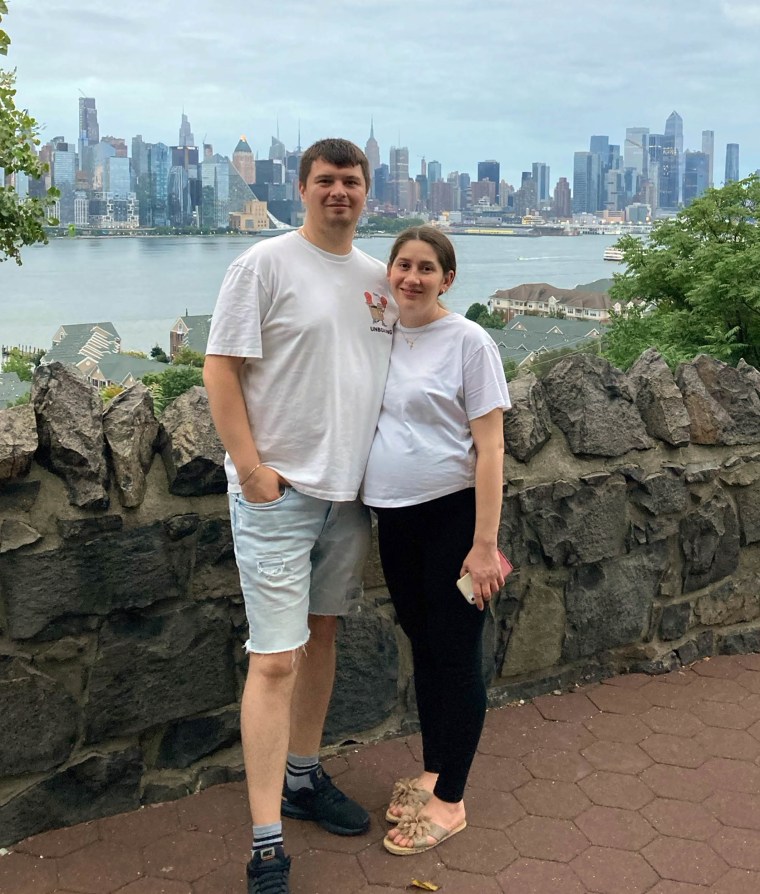
So, the team grew Volkova’s kidney cells in the lab and compared them to a control sample that did not have the DNA variant. Looking at the two sets of cells side by side, they could see that the DNA variant in Volkova's cells affected how they functioned.
The Volkovs were able to use this information to pursue IVF and create embryos that did not have Mom or Dad's DNA variants, meaning that babies born from these embryos would not have autosomal recessive polycystic kidney disease.
Had the Volkovs not learned about their DNA variants, every subsequent pregnancy would've had a 25% chance of developing ARPKD, Richter says.
And it's possible that future screening tools for polycystic kidney disease could include Volkova's variant, Richter adds.
While ARPKD is rare, affecting about one in 20,000 children, it's devastating for families, and because it's recessive, it can be harder to know when a child will develop it.
Pregnancy after loss
The findings offered Volkova some measure of comfort.
“I actually was looking for answers, and I was blaming myself for everything, like even eating something, even drinking coffee,” she says. “What if I did this and I caused him to be like this?”
For six months, she felt convinced that she accidentally harmed her baby. While she wanted answers, she also hoped the research could help her have a healthy baby.
“It’s impossible pain to lose (your child). It’s really, really bad,” she says. “I wanted to prevent this happening in the future because it’s too much.”
Even though the embryos were genetically tested before Volkova underwent IVF, she still worried during her pregnancy.
“With my history and my experience, knowing that my previous pregnancy was perfect, whenever the doctor would tell me with this pregnancy that she was healthy and perfect, I had the memory (from the last time),” she says. “I still had the fear (of) what if something's going to go wrong?”
Volkova experienced panic attacks during pregnancy. Even after delivering baby Daria on Sept. 9, 2024, the anxiety continued.
“I would watch our daughter because we were afraid to lose her like with my son,” she says. “We didn’t leave her alone.”
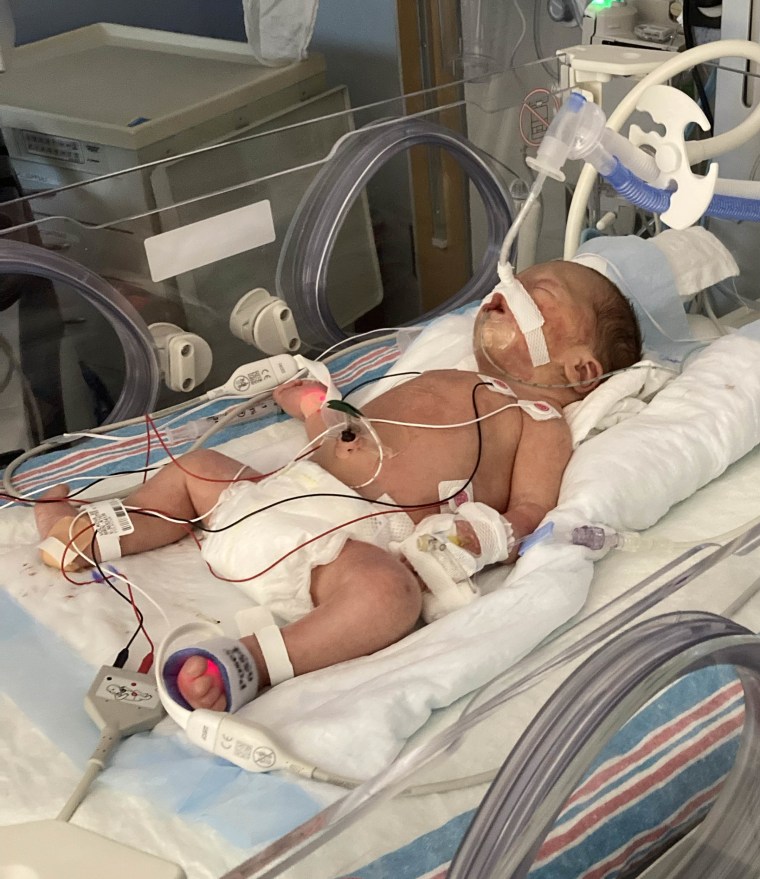
Daria recently had a baptism, and the Volkovs are settling into parenthood. They feel grateful that the research their son inspired will assist others.
“It’s going to help not just me but other people,” Volkova says. “He (brought) something into this world because we discovered something thankfully from him.”
